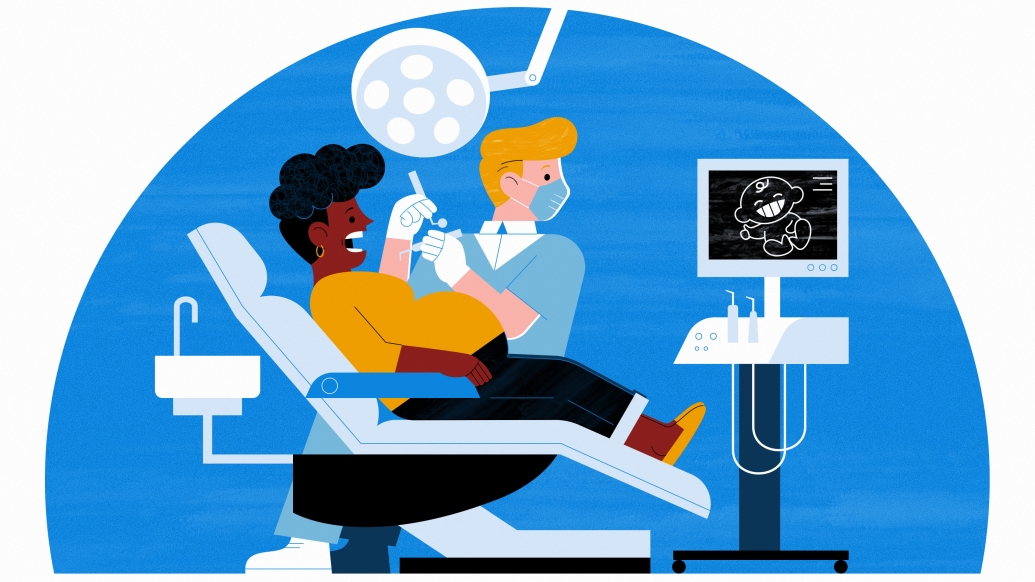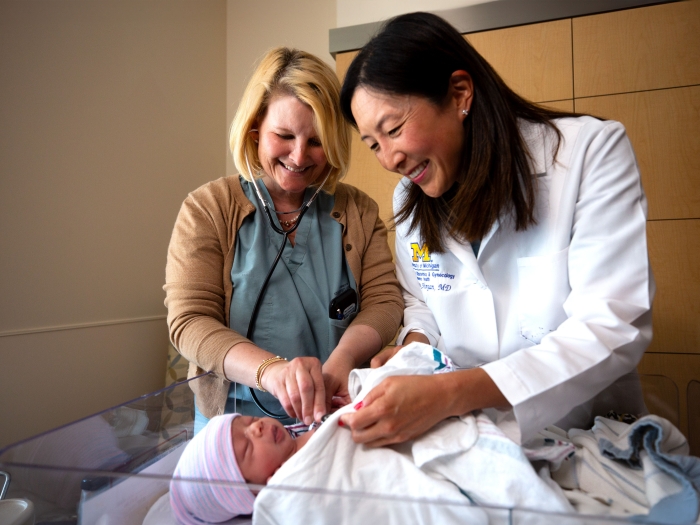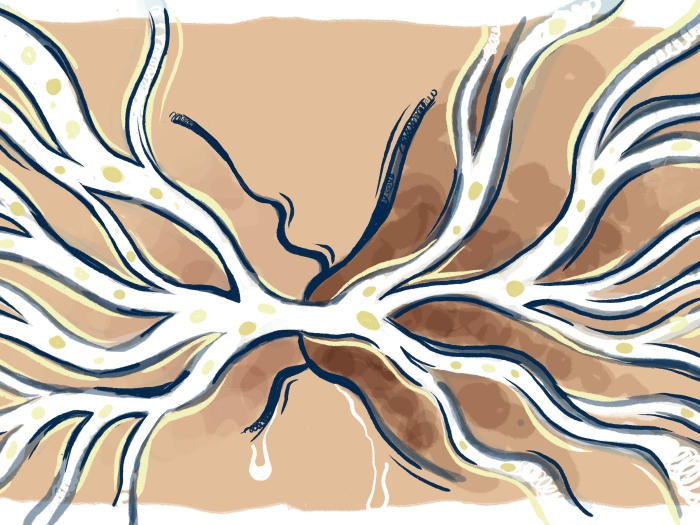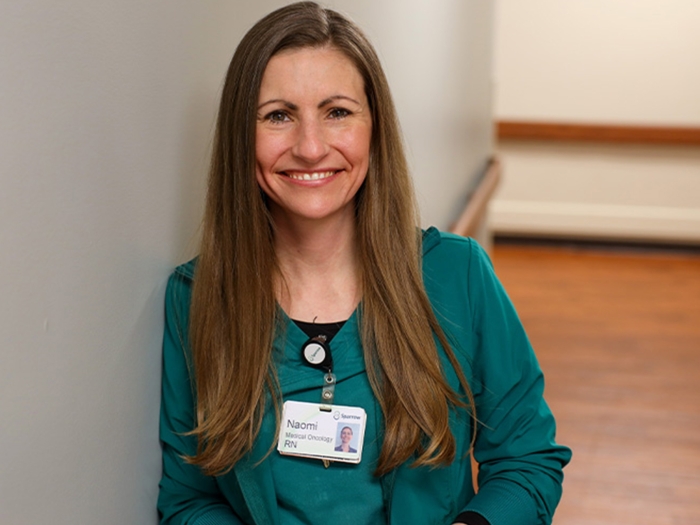Oral care is important, and your prenatal care should involve a trip to the dentist
5:00 AM
Author |

What do your teeth and gums have to do with pregnancy? Plenty, says Stephanie Young, M.D., an obstetrician gynecologist at the University of Michigan Health Von Voigtlander Women’s Hospital.
She helped write the guidelines for the Michigan Department of Health and Human Services in a brochure titled, “During Pregnancy, the Mouth Matters: A Guide to Michigan Perinatal Oral Heath.”
Here are seven things you should know about dental care during pregnancy.
1. Does pregnancy increase your risk for cavities?
It definitely can. Rampant hormones are part of the cause, Young says.
Hormones may cause gingivitis – when gums become inflamed, bleed and swell. This can trap food.
Between 60–75% of pregnant women have gingivitis – an early form of periodontal disease – according to the American Dental Association Council on Access, Prevention and Interprofessional Relations.
Periodontitis can cause bone loss and loosening teeth that may require removal.
“A lot of people have it to begin with so it's not specifically ‘pregnancy causes periodontal disease.’ I think it’s present in people beforehand and there are other factors involved,” said Young.
Hormones prompt morning sickness, including vomiting. The acid in vomit damages tooth enamel.
The act of brushing teeth can trigger nausea or a gag reflex, causing some women to avoid brushing. That allows cavity-causing bacteria to multiply.
2. Do changed eating habits impact your oral health?
To combat morning sickness, many women replace three meals a day with smaller, more frequent meals. But., if they don’t brush or floss between those micro meals, more bacteria grows.
More bacteria may translate to more cavities.
Also, pregnancy often prompts weird cravings for food that women don’t usually eat. These erratic food choices may introduce additional bacteria to the mouth.
Fatigue is a factor, too, Young reminds. Some women are too tired to get up and brush their teeth at the end of the night or after a big snack. That can impact your oral care big time.
3. Can your poor oral care impact baby’s oral care?
Unfortunately, yes.
“There are studies that show women who have more of certain bacteria that causes cavities, their babies can be at increased risk for having that bacteria in the future, which can affect their oral health,” Young said.
The bacteria is transmissible and can colonize before a baby’s teeth erupt, according to Young.
And how a baby is delivered can also influence the outcome: C-section babies tend to have an accelerated version of the bacteria compared with a baby delivered vaginally.
4. Can poor oral care hurt baby?
“There’s an association – not necessarily a causality – with poor oral hygiene and worse pregnancy outcomes or pregnancy complications,” Young said.
Preterm birth and growth restriction of the fetus have been linked to gum disease, but that doesn’t mean that sudden improvements in tooth care can reverse any effects.
“There have been no studies that support that outcome,” she added.
Fortunately, pregnancy often alters a woman’s behavior.
“Pregnancy is a unique time and many women might be more motivated to do something for their health,” she said. “And it's also a time when they might seek out health care when normally they would not.”
Suddenly, they want to go to the dentist, and that’s an appropriate response.
“Pregnancy is a unique time and many women might be more motivated to do something for their health. And it's also a time when they might seek out health care when normally they would not.” – Stephanie Young, M.D.
5. During which trimesters should you visit the dentist?
Every trimester, says Young.
Unfortunately, some dentists believe they can only work on a pregnant woman in her second trimester, an outdated belief from their dental school days. Even five short years ago, Young say many still believed that.
Stick to your regular six-month cleaning schedule and visit whenever that falls, she says.
One exception to that may be if you have bad nausea or vomiting, a typical occurrence in the first trimester. When that subsides, make that dental appointment, and be sure to inform the staff about your pregnancy.
6. Which dental procedures can you undergo?
A pregnant woman may have a cleaning, fillings, extractions, root canals and the like.
“You can do almost everything that you need to do at the dentist during pregnancy, unless you have to be put under a general anesthesia,” Young said. “Local anesthesia is fine and many of the antibiotics that dentists use are fine.”
“This is one of the biggest reasons why I did the guidelines,” she added.
“It would drive me nuts how people were always coming and saying, ‘my dentist said that they can't do this during pregnancy.’ The answer is yes, yes you can.”
7. Are dental X-rays safe for your baby?
X-rays are fine as long as your abdomen and thyroid are shielded, Young says.
“There is not a lot of radiation exposure from dental X-rays to the fetus. It’s minimal.”
If you’re uncomfortable with the idea, talk to your dentist about putting it off until after you deliver.
“Oral health care is an important part of your general health regardless of if you’re pregnant or not,” she said.

Explore a variety of health care news & stories by visiting the Health Lab home page for more articles.

Department of Communication at Michigan Medicine
Want top health & research news weekly? Sign up for Health Lab’s newsletters today!





